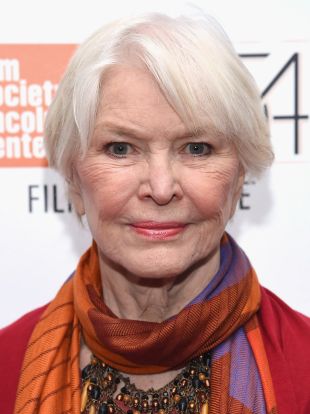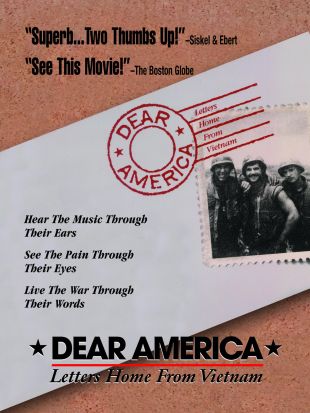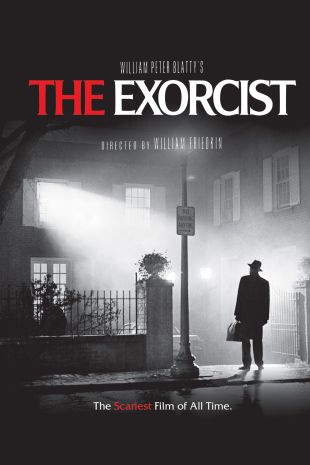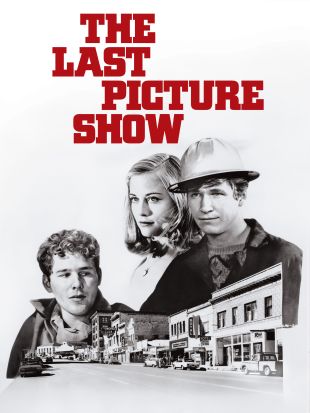Actress Ellen Burstyn enjoyed her greatest prominence during the '70s, a decade during which she was a virtual fixture of Academy Award voters' ballots. Born Edna Rae Gillooly in Detroit, MI, on December 7, 1932, as a teen she studied dancing and performed in an acrobatic troupe. She later became a model for paperback book covers, subsequently dancing in a Montréal nightclub under the name "Keri Flynn." In 1954, she was tapped to appear as a Gleason Girl on television's Jackie Gleason Show, and in 1957, she made her Broadway debut in Fair Game, again with a new stage name, "Ellen McRae." While in New York, Burstyn studied acting under Stella Adler, and later married theatrical director Paul Roberts. She briefly relocated to Los Angeles for television work but soon returned east to work at the Actors' Studio. She made her film debut in 1964's For Those Who Think Young, quickly followed by Goodbye Charlie. The cinema did not yet suit her, however, and she spent the remainder of the decade appearing on the daytime soap opera The Doctors.
It was after marrying her third husband, actor Neil Burstyn, that she adopted the name most familiar to audiences, and was so billed in 1969's film adaptation of Henry Miller's Tropic of Cancer. While the picture was unsuccessful, it did attract the notice of director Paul Mazursky, who cast her in his 1970 project Alex in Wonderland. Burstyn then began a string of high-profile films which established her among the preeminent actresses of the decade: The first, Peter Bogdanovich's 1971 masterpiece The Last Picture Show, earned her a Best Supporting Actress Academy Award nomination, but she lost out to co-star Cloris Leachman. Burstyn next appeared opposite Jack Nicholson in Bob Rafelson's acclaimed The King of Marvin Gardens before starring in William Friedkin's 1973 horror hit The Exorcist, a performance which earned her a Best Actress nomination. For Mazursky, she co-starred in the whimsical 1974 tale Harry and Tonto, and then appeared in a well-received TV feature, Thursday's Game.
However, it was 1974's Alice Doesn't Live Here Anymore which truly launched Burstyn to stardom. Warner Bros. had purchased the screenplay at her insistence two years earlier, but her efforts to bring it to the screen were met with considerable resistance. Her first choice for director was Francis Ford Coppola, who declined, but he suggested she approach Martin Scorsese. In the wake of Mean Streets, Scorsese was eager to attempt a "woman's film," and agreed to take the project on. The result was a major critical and commercial success, and on her third attempt Burstyn finally won an Oscar. That same year, she won a Tony for her work on Broadway in the romantic drama Same Time, Next Year, the first actress to score both honors during the same awards season since Audrey Hepburn two decades prior. However, upon wrapping up her theatrical run, Burstyn was not besieged by the offers so many expected her to receive. In fact, she did not appear onscreen for three years, finally resurfacing in Alain Resnais' Providence.
The film was not a success, nor was 1978's Jules Dassin-helmed A Dream of Passion. With co-star Alan Alda, Burstyn reprised her Broadway performance in a 1978 feature version of Same Time, Next Year, but it too failed to meet expectations, although she was again Oscar-nominated. After a two-year hiatus, she starred in Resurrection, followed in 1981 by Silence of the North, which went directly to cable television. For the networks, she starred in 1981's The People vs. Jean Harris, based on the notorious "Scarsdale diet" murder. After 1984's The Ambassador, Burstyn co-starred in the following year's Twice in a Lifetime, which was to be her last feature film for some years. She instead turned almost exclusively to television, appearing in a series of TV movies and starring in a disastrously short-lived 1986 sitcom, The Ellen Burstyn Show. Finally, in 1988, she returned to cinemas in Hanna's War, followed three years later by Dying Young. Other notable projects of the decade included 1995's How to Make an American Quilt, The Spitfire Grill (1996), and the 1998 ensemble drama Playing by Heart, in which she played the mother of a young man dying of AIDS. If her success and talents had eluded younger audiences for the past decade all of that would change with Burstyn's role as the delusional mother of a heroin addict in Darren Aranofsky's grim addiction drama Requiem for a Dream. An adaptation of Hubert Selby, Jr.'s novel of the same name, Burstyn's heartbreaking performance as an abandoned mother whose dreams come shattering down around proved an Oscar nominated performance. She subsequently appeared in such made-for-television dramas as Dodson's Journey and Within These Walls (both 2001) and such films as Divine Secrets of the Ya-Ya Sisterhood and Cross the Line (both 2002). Burstyn appeared in a variety of well-received television films including Mrs. Harris and The Five People You Meet in Heaven, and had a role in the short-lived series The Book of Daniel. She maintained her presence on the big screen by reteaming with Arronofsky in his big-budget tale The Fountain, and she appeared in Neil La Bute's remake of The Wicker Man. Burstyn was soon gearing up to reteam with Aranofsky for the time travel fantasy thriller The Fountain. She continued to work steadily in various projects such as the political biopic W.; Lovely, Still; and played a stern matriarch in the indie drama Another Happy Day.



